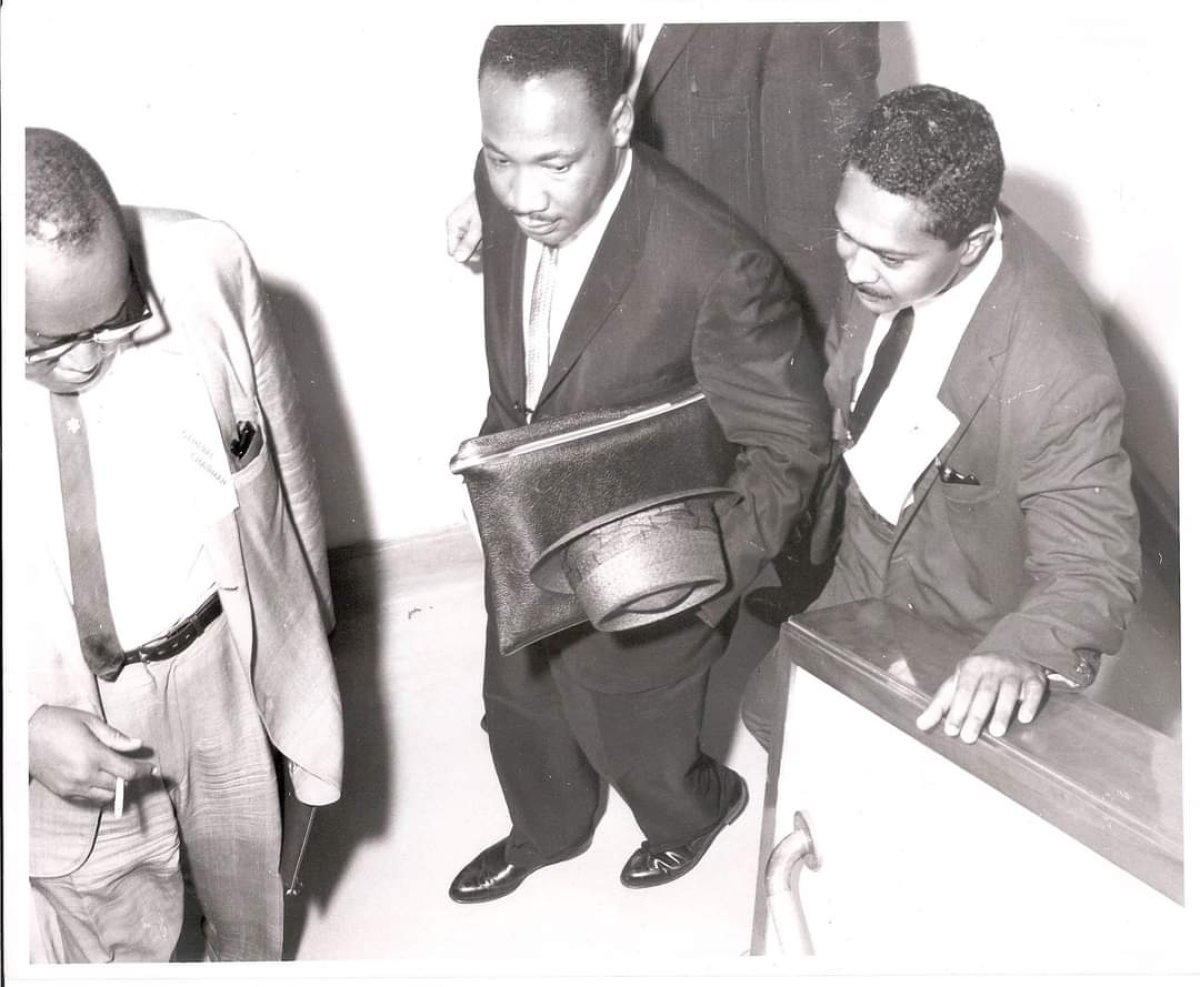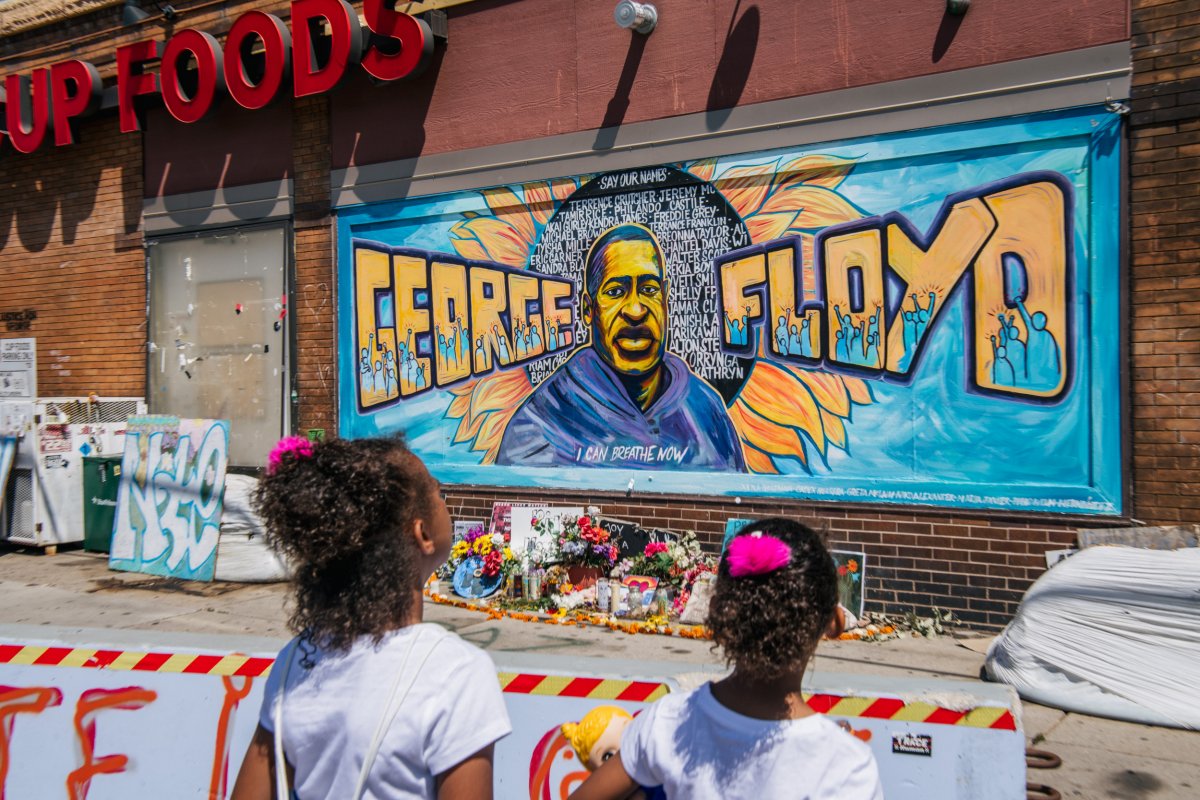As a young boy, I used to see my late great-uncle, Mervyn Dymally, sit on the patio of our family home and look out toward the ocean. He would sit there for hours. My uncle was a California congressman and then lieutenant governor, and it was only later as an adult that I understood what must have been weighing on him as he stared out at the ocean, the weight of his responsibilities to his constituents and the political fights ahead.
Men of my uncle's generation, men like Dr. Martin Luther King Jr., who my uncle was intimate with, were motivated by the work still to be done. Obsessively mission driven and focused on the needs of their community, these men marched and advocated tirelessly for equality for the Black community.

These days, such men are few and far between. That work, the marches, the community organizing, the responsibility that came from being men of action, it's all been replaced by passive outrage and identities rooted in victimhood, most of which takes place on the internet.
The contrast between these two versions of political racial identity was put on display by a recent gaffe President Biden made comparing Dr. King and George Floyd, a Black man who was killed when a white police officer knelt on his neck for nine minutes.
"Even Dr. King's assassination did not have the worldwide impact that George Floyd's death did," President Biden said recently.
Biden: “Even Dr. King’s assassination did not have the worldwide impact that George Floyd’s death did.” pic.twitter.com/sth2bArDDI
— The Post Millennial (@TPostMillennial) January 17, 2022
Many on the right were quick to excoriate the President, decrying the statement as a betrayal of Dr. King's legacy. But the sad thing is, President Biden may be right. Dr. King's assassination didn't have the worldwide impact that George Floyd's death did, when you look at how it has come to define a new kind of racial activism. And to admit the truth of that statement is not to condone it.
The President—a man, it bears noting, who's seen the impact of racial activism in Dr. King's time and in our own—was not comparing the men and their racial justice efforts. He was instead comparing the impact of their untimely deaths. And it is true that Floyd's death was not just a personal tragedy or the spark of a renewed effort at racial justice. It represents the death of the kind of racial activism Dr. King preached. The impact and reach of Floyd's death is linked to a more modern symbolic martyrdom—victimhood—as opposed to the active striving embodied by Dr. King's explosive agency.
This is not to say that Floyd wasn't a victim, or that Dr. King wasn't in his death. But it is to point out that in today's climate, identity politics has mashed together real victims like Floyd with what many call microaggressions, or even perceived slights that are more subjective in nature, and much of the activism is focused on that end of the spectrum. And it's here that the vast difference between Dr. King's movement and the one sparked by George Floyd's murder comes into play.

Unlike those who speak on behalf of people like Floyd, the civil rights leaders of the past intentionally refused to be victims. Their status was defined by their work, not by those around them who refused to acknowledge it. Rosa Parks sat at the front of the bus to not be a victim of segregation. Dr. King, my great-uncle Mervyn Dymally, and John Lewis all marched, sat in and brought people together to fight for the rights, not victimhood.
Today, activism does the opposite: It comes in the form of leveraging victimhood.
This is the truth buried in the President's statement: George Floyd's death revealed how much the goal of racial activism has changed. Biden's words were an accurate assessment of the impact of victimhood on today's societal movements and the fervor that can be generated when the cause is about symbols like the one which Floyd became.
The problem is this energy and impact ends on the street and on Twitter. The policy implications are limited; look at the lack of police reform passed in Congress or the refunding of police departments just a year later after the major protests of 2020.
Historical comparisons are rarely substantive. And we are still assessing the impact of the Black Lives Matter movement, the George Floyd protests, and the violence that followed. But it's clear that the motives and goal of the modern civil rights movement is different than Dr. King's.
Hopefully Dr. King's legacy will prove strong enough to prove President Biden wrong.
Brendan Davis is a veteran and a former civil servant. He currently provides advisory services to a range of government entities.
The views in this article are the writer's own.
Uncommon Knowledge
Newsweek is committed to challenging conventional wisdom and finding connections in the search for common ground.
Newsweek is committed to challenging conventional wisdom and finding connections in the search for common ground.
About the writer
To read how Newsweek uses AI as a newsroom tool, Click here.








